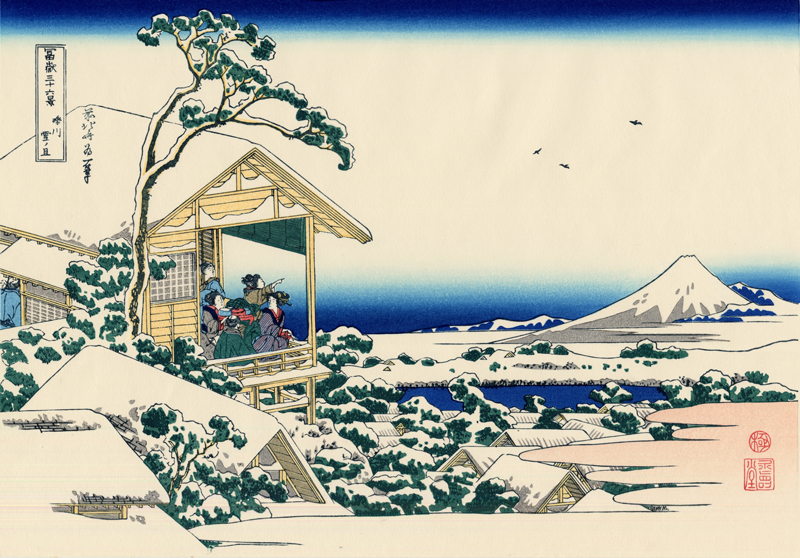
We sit on our heels on the tatami, the Japanese woman and myself, telling the stories of our lives. One can do this with a stranger. Too near, and the perspective is lost. Only the far can be near.
A sound–a knock, intimation only–had come from the inner door. And there she was in her blue yukata exactly like my own–the only wear in a Japanese inn–bowing to me, like a branch bending.
“It is permitted to practice my little English?”
I rise and become another branch. “It is permitted.”
And so we kneel before each other, the foot-square mirror at which I make my toilet reflecting each in turn.
There is no need for us to commend the cherry-blossoms–they are doing no more than their duty. Nor to chatter about the shrine at Ise.
Neither of us is a tourist. We are just two women, gone beyond time, our talk a shuttle pulling weft across warp, no beginning, no end to the pattern.
The cauldron of plenty in each of us seethes with its ferment, sweet and bitter–the world to be carried and no plaint made; love to suffer long and be kind, not vaunting, not puffed up; the seed that we carry to be threshed, freed from its crusty husk; the aching question of who we are and for what made, answered only by its echo; the need to stand before the Unknown and never ask to know; to take our leave of the world, head high, no matter how hard the parting; and, coquetry no whit abated, offer the unassuaging mould an acquiescent lip.
Arms crossed, we rock from side to side. Hushing what? Ourselves, perhaps. And again and again she murmurs a word, as a counterpoint to her movement.
“What is it that you are saying? Tell me.”
She rocks and seems to draw it closer, folding the word to her breast.
“A–Wa–Re.” She stresses the syllables, as though teaching a child.
“A–Wa–Re. It means, in our tongue, The Pity of Things.”
I look at her long and in silence. Then I rise and bow.
“Do you know that what you have said is our word ‘Aware’?”
She looks at me long and in silence. Then she, too, rises and bows. And at the door bows again.
There is nothing to say. We say nothing.
–Pamela Travers from her article Zen Moments, PARABOLA Vol. XII, No. 4 (Winter 1987). Reprinted as the Focus to Vol. XXI, No. 3 (Fall, 1996).
This issue is available here.
